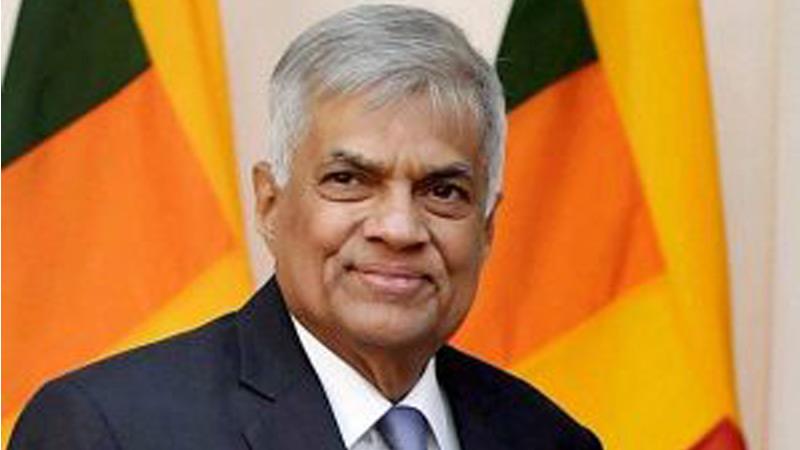
Sri Lanka has defaulted on its debt for the first time in its history as the country struggles with its worst financial crisis in more than 70 years.
A 30-day grace period to come up with US$ 78m of unpaid debt interest payments expired last Wednesday.
The Governor of the South Asian nation’s Central Bank said the country was now in a “pre-emptive default”.
Later on Thursday, two of the world’s biggest credit rating agencies also said Sri Lanka had defaulted.
Defaults happen when Governments are unable to meet some or all of their debt payments to creditors.
It can damage a country’s reputation with investors, making it harder for it to borrow the money it needs on international markets, which can further harm confidence in its currency and economy.
Restructure
Asked on Thursday whether the country was now in default, Central Bank Governor P. Nandalal Weerasinghe said: “Our position is very clear, we said that until they come to the restructure [of our debts], we will not be able to pay. So that’s what you call pre-emptive default.
“There can be technical definitions... from their side they can consider it a default. Our position is very clear, until there is a debt restructure, we cannot repay,” he added.
Sri Lanka is seeking to restructure debts of more than US$ 50 bn it owes to foreign creditors, to make it more manageable to repay.
The country’s economy has been hit hard by the pandemic and rising energy prices, but critics say the current crisis has been of the previous Government’s own making.
A chronic shortage of foreign currency and soaring inflation have led to a severe shortage of medicines, fuel and other essentials.
Struggling
Prof. Mick Moore from the University of Sussex and former consultant on Sri Lanka for the Asian Development Bank said even though it looked like Sri Lanka was struggling from the effects of global economic problems, it was “emphatically not that”.
“This is the most man-made and voluntary economic crisis of which I know,” he told the BBC’s Today program.
Prof Moore said the previous administration had borrowed money for infrastructure projects and then “insisted in this very macho fashion” on repaying mounting the debts, rather than restructuring them with creditors.
He said the then Government “went along in this way until about six months ago and basically they had given away virtually all the foreign exchange they could command”.
“This is egregious incompetence,” he added.
Prof Moore said the country faced a “very critical situation”.
In recent weeks, there have been large, sometimes violent, protests against President Gotabaya Rajapaksa and his family due to the growing crisis.
The country has already started talks with the International Monetary Fund (IMF) over a bailout and needs to renegotiate its debt agreements with creditors.
Later on Thursday, an IMF spokesman said the current talks on a potential loan program were expected to conclude on Tuesday.
Sri Lanka’s the Government has said previously that it needs as much as US$4 bn this year.
Weerasinghe warned that Sri Lanka’s already very high rate of inflation was likely to rise further.
“Inflation obviously is around 30 percent. It will go even [higher], headline inflation will go [up] around 40 percent in the next couple of months,” he said.
He was speaking after Sri Lanka’s Central Bank held its two key interest rates steady following a seven percentage points rise at its last meeting.
Warning
The country’s main lending rate remained at 14.5 percent, while the deposit rate was kept at 13.5 percent.
In many ways this wasn’t a surprise. The warning sirens of a potential default were already blaring a few weeks ago.
But much more than that, on the streets of Sri Lanka, where this crisis is biting, nobody is shocked.
As petrol queues run for miles, with fuel being sold on the black market for eye-watering amounts, as lines for handouts of free bread get longer by the day, the island’s inability to pay back debts is being painfully felt.
In his first interview since taking office last week, the country’s Prime Minister Ranil Wickremesinghe told me things would get worse before they improve in Sri Lanka, but even he wasn’t able to predict just how bad.
“No-one has got all the details… so I will be like a doctor who’s opening up the patient for the first time.”
Today’s default is a depressing diagnosis for a nation facing more economic turmoil, even as talks with the IMF and other nations continue.
Ratings
On Thursday, ratings agency Moody’s Investors Service said Sri Lanka had “defaulted on its international bonds for the first time”.
Moody’s said it expected the country to eventually reach an agreement over an IMF bailout.
“However, finalising the program will likely take several months given the need for staff level agreement on both sides, followed by Parliamentary approval in Sri Lanka and approval by the IMF’s executive board,” the firm added.
Also on Thursday, Fitch Ratings lowered its assessment of Sri Lanka to a “restricted default” after a grace period for payments had expired.
S&P Global Ratings did not immediately respond to a request for comment from the BBC.
Credit ratings are intended to help investors understand the level of risk they face when buying a financial instrument, in this case a country’s debt - or sovereign bond.
Last month, S&P and Fitch credit rating agencies warned Sri Lanka was about to default on its debts.
Last week, President Rajapaksa’s elder brother Mahinda resigned as Prime Minister after Government supporters clashed with protesters. Nine people died and more than 300 were wounded in the violence.
On Friday, Sri Lanka’s new Prime Minister Ranil Wickremesinghe told the BBC that the economic crisis was “going to get worse before it gets better”.
He also pledged to ensure families would get three meals a day.
Appealing to the world for more financial help, he said “there won’t be a hunger crisis, we will find food”. - BBC
